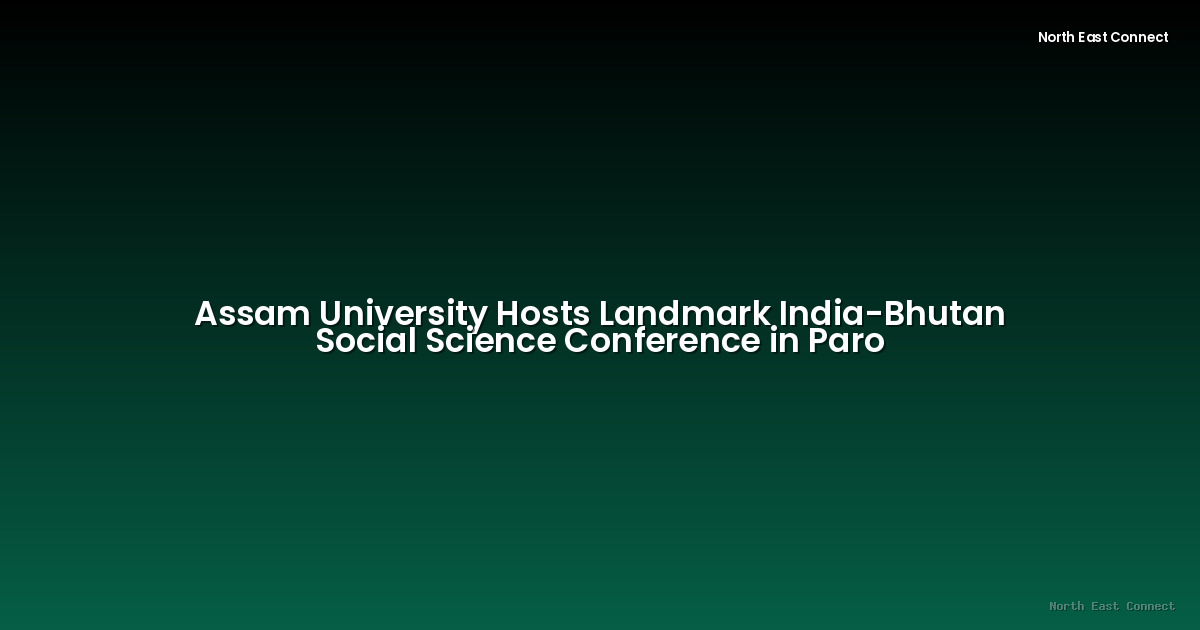2025-09-09 · News
Assam University recently played a pivotal role in strengthening academic ties between India and Bhutan. The university successfully hosted a landmark India-Bhutan social science conference in Paro, Bhutan. This significant event brought together leading academics, researchers, and policymakers from both nations to discuss a range of crucial social science issues relevant to the region.
The conference, the details of which were not fully available in the source material, aimed to foster deeper understanding and collaboration between the two countries. Its location in Paro, Bhutan, underscored the importance of engaging directly with Bhutanese perspectives and expertise. The specific themes addressed during the conference remain largely undisclosed in the initial reporting; however, the very act of holding such an event signifies a commitment to shared research and knowledge exchange.
This initiative highlights Assam University's growing role as a prominent institution in fostering international academic collaborations. By facilitating this dialogue between India and Bhutan, the university contributes to a broader understanding of the complex social, economic, and political dynamics shaping the relationship between the two nations. The collaborative nature of the conference suggests a focus on shared challenges and opportunities, reflecting the increasingly interconnected nature of the region.
Such academic exchanges are crucial for several reasons. They promote the sharing of research findings and methodologies, ultimately leading to better-informed policy decisions. The direct interaction between academics from both countries fosters personal connections and builds long-term relationships crucial for sustained collaboration. Furthermore, these events contribute to a more nuanced understanding of the region’s history, culture, and societal development.
The success of the Assam University-led conference in Paro marks a positive step toward strengthening India-Bhutan relations through academic engagement. The event’s impact extends beyond the immediate participants, creating a ripple effect in promoting regional cooperation and understanding. While details about the specific topics discussed and outcomes achieved remain limited in available information, the overall significance of this cross-border academic initiative is undeniable. Future reporting may provide more in-depth information on the specific research presented and conclusions reached during the conference. However, the very fact that such a conference took place underscores the importance of academic diplomacy in strengthening bilateral relations between India and Bhutan. Further investigation into the conference's proceedings would provide a more comprehensive understanding of its overall impact and contribution to regional scholarship.
The conference’s success showcases the potential for further academic partnerships between Indian and Bhutanese institutions, thereby enriching the understanding of shared history, socio-cultural dynamics, and future collaborative opportunities for the region. The focus on social science, a field inherently relevant to societal well-being and development, further underlines the practical significance of this endeavor. The long-term impact of this conference will undoubtedly contribute to better informed policies and stronger ties between India and Bhutan.







